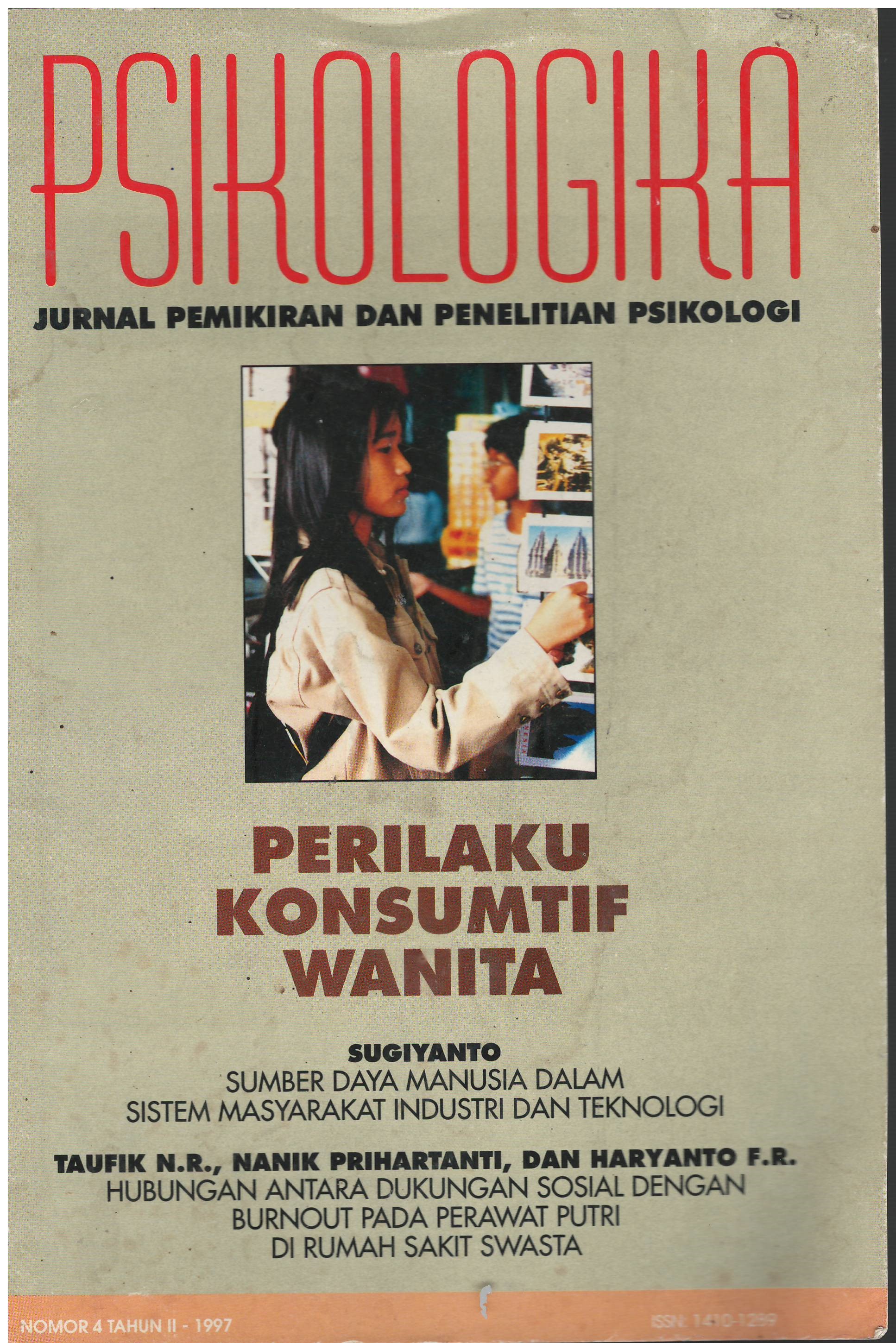Main Article Content
Abstract
Tujuan yang ingin dicapai dari penelitian ini ialah mengetahui adanya perbedaan perilaku konsumtif remaja putri yang berorientasi locus of control internal dengan yang berorientasi ekstemal. Hipotesis yang diajukan ialah terdapat perbedaan perilaku konsumtif antara remaja ber-loc internal dengan remaja ber-loc eksternal.
Subjek penelitian ialah siswa-siswa kelas II berusia antara 16 sampai dengan 18 tahun pada sebuah SMU swasta khusus putri di Kodya YogÂyakarta. Data diperoleh melafui penggunaan angket perilaku konsumtit, dan skala IPC-LOC, serta angket mengenai kepemilikan uang saku siswa.Analisis data menggunakan program analisis kovariansi.
Hasil analisis data menuruukken ada perbedaan (F = 27, 788; p<0,01 ).
Subjek ber-loc internal mempunyai rerata perilaku konsumtit (M,,_ = 59,064)
lebih rendah dari pada kelompok subjek ber-loc eksternal (M.s = 79,023).
Hasil ini membuktikan bahwa locus of control berperan di dalam munculnya
perilaku konsumtif pada remaja putri.
Kata kunci: perilaku konsumtif, locus of control, remaja putri
Article Details
Authors who publish with this journal agree to the following terms:
- Authors retain copyright and grant the journal right of first publication with the work simultaneously licensed under a Creative Commons Attribution-ShareAlike 4.0 International License that allows others to share the work with an acknowledgment of the work's authorship and initial publication in this journal.
- Authors are able to enter into separate, additional contractual arrangements for the non-exclusive distribution of the journal's published version of the work (e.g., post it to an institutional repository or publish it in a book), with an acknowledgment of its initial publication in this journal.
- Authors are permitted and encouraged to post their work online (e.g., in institutional repositories or on their website) prior to and during the submission process, as it can lead to productive exchanges, as well as earlier and greater citation of published work (See The Effect of Open Access).




